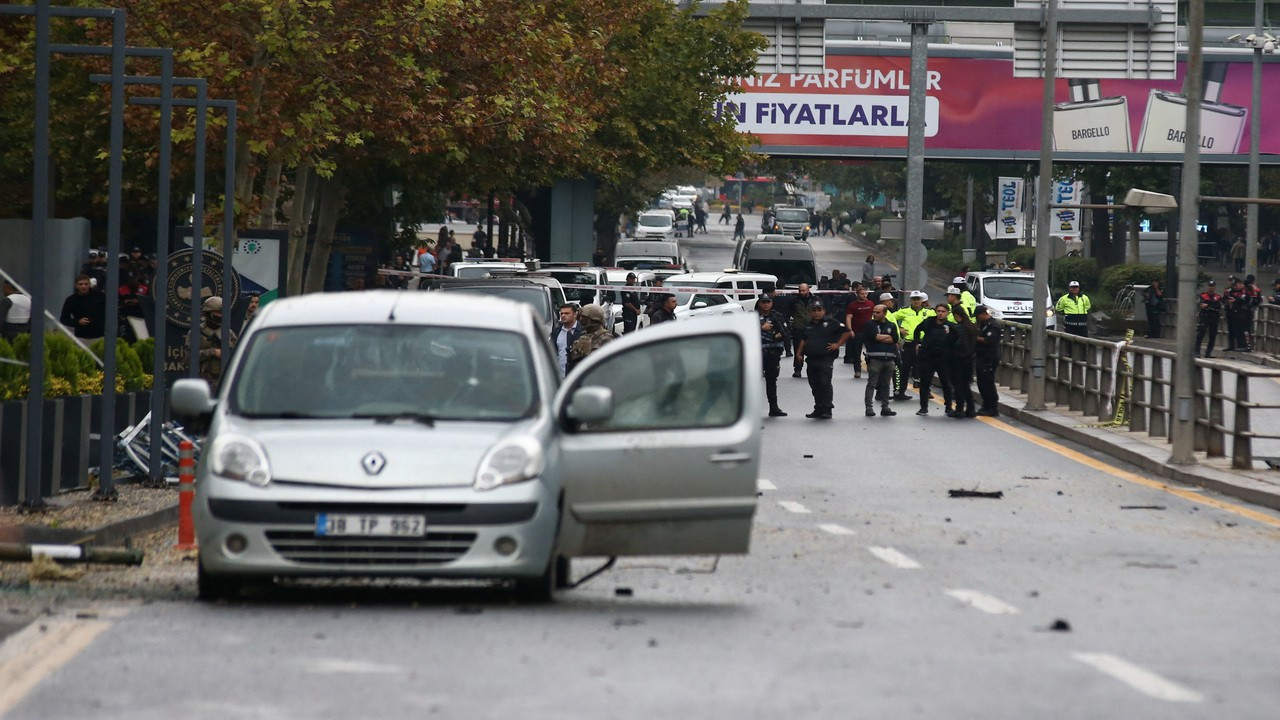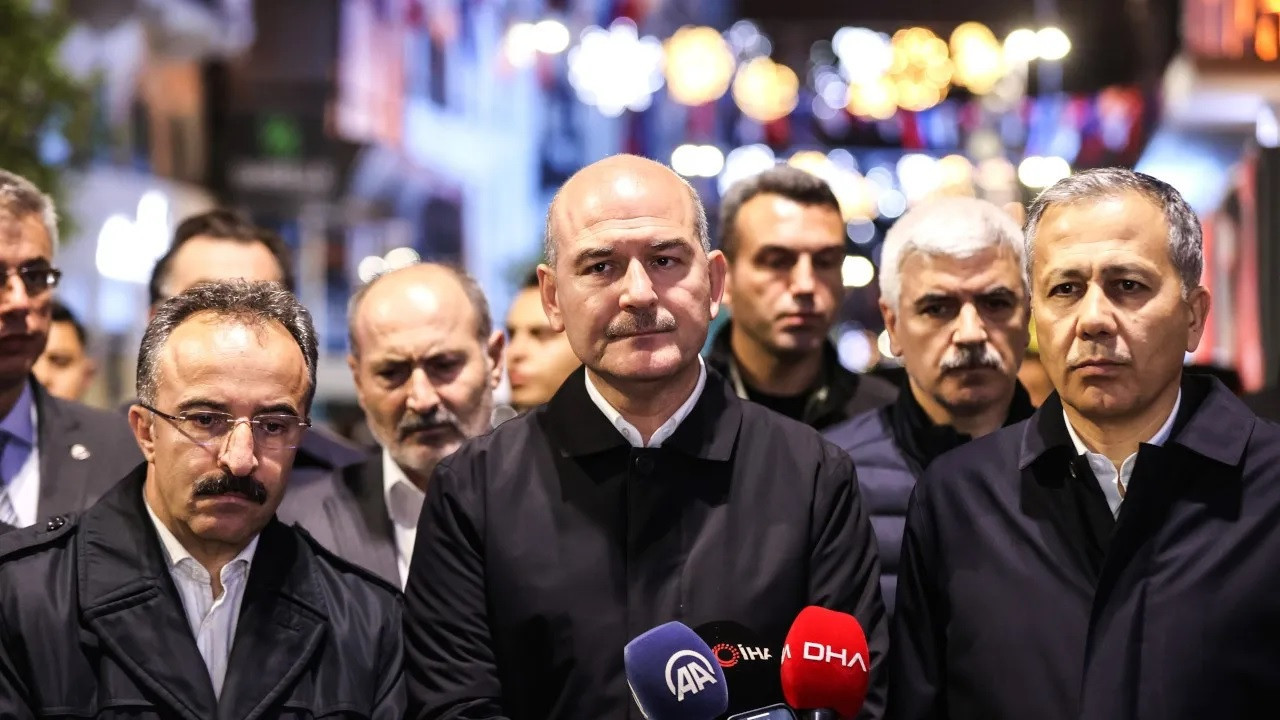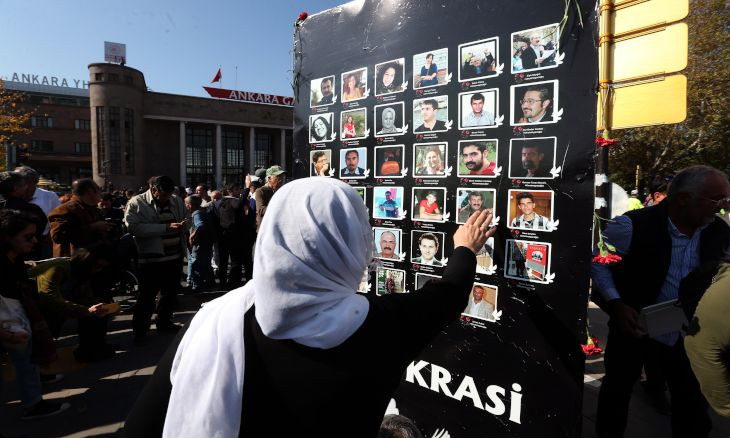Turkey 'neutralizes' numerous militants in Iraq air strikes over bomb attack in capital
Turkey's defense ministry on Oct. 1 stated that the air strikes in northern Iraq destroyed 20 targets in PKK's camps after the bomb attack that struck the nation's capital on the same day.
Reuters
Turkish air strikes in north Iraq late on Oct.1 "neutralized" many Kurdish militants and destroyed their depots and shelters, Turkey's defense ministry said, hours after a Kurdish group claimed responsibility for a bomb attack in Ankara.
Teröristler, kendilerini bekleyen sondan kaçamayacak!
— T.C. Millî Savunma Bakanlığı (@tcsavunma) October 1, 2023
Bir gece ansızın inlerinde vurduk, vurmaya devam edeceğiz.
Tek bir terörist kalmayıncaya kadar da bu mücadele bitmeyecek!#MillîSavunmaBakanlığı pic.twitter.com/ctPwAL7O0S
Two attackers detonated a bomb near government buildings in Turkey's capital on Sunday morning. Both attackers were killed and two police officers were wounded.
The outlawed Kurdistan Workers Party (PKK) militant group claimed responsibility for the attack.
"A total of 20 targets were destroyed, consisting of caves, bunkers, shelters and depots used by the separatist terrorist organization," the ministry said, adding that many militants were "neutralized", a term used to mean killed.
The operations were conducted in the Metina, Hakurk, Qandil and Gara regions of northern Iraq at 9 p.m. (1800 GMT) and that every measure was taken to avoid harm to civilians and the environment, the ministry said.
Iraq rejects Turkish strikes in Kurdistan region, seeks resolution
Iraq rejects repeated Turkish air strikes or the presence of Turkish bases in its Kurdistan region and hopes to come to an agreement with Ankara to solve this problem, Iraqi President Abdul-Latif Rashid said in comments aired on Oct. 2.
It was not clear whether the interview was filmed before or after Sunday's Turkish air strikes.
Rashid said such strikes sometimes killed civilians, including people visiting the region who "become victims of Turkish bombing."
Turkey has denied targeting civilians and says it works to avoid civilian casualties through its coordination with Iraqi authorities.
Rashid is a member of the Iraqi Kurdish PUK party that has close ties to Iran and has criticized Turkey's strikes in Iraq's north. The post of president is largely ceremonial in Iraq.
Rashid said Baghdad hoped to come to an agreement with Ankara to resolve the issue in a manner similar to a security agreement Iraq has inked with Iran to deal with Iranian Kurdish separatist groups in the Kurdistan region.
Earlier on Sunday, CCTV footage obtained by Reuters showed a vehicle pulling up to the Interior Ministry's main gate and one of its occupants quickly walking toward the building before being engulfed in an explosion. The other stayed on the street.
The bomb killed one attacker and authorities killed the other, the interior minister said. The blast rattled a district that is home to ministerial buildings and the nearby parliament in what was the first attack in the capital in years, coinciding with the opening of the new parliamentary session.
The ANF News website, which is close to the PKK, cited the group as saying in a statement that a team from its Immortals Battalion unit had carried out the attack.
The PKK is designated as a terrorist organization by Turkey, the United States and the European Union. It launched an insurgency in southeast Turkey in 1984 and more than 40,000 people have been killed in the conflict.
The bomb on Ataturk Boulevard was the first in Ankara since 2016, when a spate of deadly attacks gripped the country.
Video afterwards showed a Renault cargo vehicle parked at the scene with windows shattered and doors open, amid debris and surrounded by soldiers, ambulances, fire trucks and armored vehicles.
A senior Turkish official told Reuters the attackers had hijacked the vehicle and killed its driver in Kayseri, a city 260 km (161 miles) southeast of Ankara, before carrying out the attack.
During a series of bloody incidents in 2015 and 2016, Kurdish militants, Islamic State and other groups either claimed or were blamed for a series of attacks in Turkish cities.

 Bomb attack strikes Turkish capital as PKK claims responsibilityDomestic
Bomb attack strikes Turkish capital as PKK claims responsibilityDomestic Person behind Istiklal bombing arrested, as PKK denies involvementDomestic
Person behind Istiklal bombing arrested, as PKK denies involvementDomestic The Ankara massacre four years on: as the legal battles continue, so does the painDomestic
The Ankara massacre four years on: as the legal battles continue, so does the painDomestic